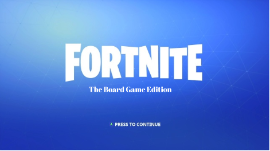Board Game Lesson Plan Template
Transcript: Board Game Lesson Plan Template Introduction to Board Games Definition of Board Games Board games are structured forms of play involving rules, strategies, and interaction, typically played on a flat surface with game pieces. They encompass various genres, including strategy, role-playing, and trivia, each encouraging cognitive and social skills. Importance in Education Board games provide interactive learning experiences that enhance critical thinking, teamwork, and problem-solving skills. Their incorporation in curriculum supports engagement, retention, and collaboration among students, offering a tangible method for applying theoretical concepts. Objectives of the Lesson Plan The lesson plan aims to facilitate knowledge acquisition through gameplay, fostering a deeper understanding of subject matter. Additionally, it seeks to cultivate social interaction, strategic thinking, and self-assessment among students during and after the games. An Innovative Approach to Engaging Learning Components of the Lesson Plan Title and Overview Learning Objectives The title of the lesson plan clearly reflects its focus on board games and education. An engaging overview provides context, explaining the importance of integrating board games into the learning environment for enhanced student engagement and motivation. The lesson plan outlines specific learning objectives, such as improving critical thinking, teamwork, and problem-solving skills through interactive gameplay. Clear objectives guide both educators and students in understanding the expected outcomes of the lesson. Required Materials Session Duration Essential materials include a selection of board games that align with the lesson's learning objectives, instructional handouts, and assessment tools. Preparing these materials in advance ensures a smooth and effective lesson delivery. The duration of the session is critical, typically ranging from 45 to 90 minutes, depending on the complexity of the game and the depth of discussion required. This timeframe allows for initial instruction, gameplay, and debriefing sessions to reinforce learning. Implementing the Lesson Plan Game Selection Criteria Choose board games that align with learning objectives, age-appropriateness, and engagement levels. Consider games that foster collaboration, critical thinking, and subject-specific skills to ensure maximum educational value. Monitoring and Assessment Step-by-Step Instructions Observe students during gameplay to assess engagement and comprehension. Use formative assessments through observational notes or quick check-ins to adapt instruction and provide support where needed. Provide clear and concise guidelines for gameplay, including setup, rules, and objectives. Break down complex games into manageable steps to facilitate understanding and ensure engagement throughout the lesson. Customization and Adaptation Reflection and Feedback Encourage students to share their experiences and insights about the game. Gather feedback to understand what worked well and what could be improved, helping to refine future lesson implementations. Strategies for Diverse Learning Styles Incorporating Different Subjects Modifying Games for Various Age Groups Additional Resources and Tools Recognizing different learning styles—visual, auditory, and kinesthetic—enables effective game adaptation. Games can incorporate visual aids or auditory instructions, and hands-on activities keep players engaged and cater to all learning preferences. Adjusting rules and complexity allows board games to be suitable for diverse age ranges. For younger players, simplify rules or shorten playtime, while older students can benefit from more intricate strategies and challenges. Board games can seamlessly integrate various subjects, enhancing interdisciplinary learning. A math-focused game can include elements of history or language arts, thus broadening the context of the subject matter while maintaining engagement. Utilizing online resources and communities allows educators to gather ideas and materials. Websites, forums, and professional development workshops provide valuable insights and innovative game adaptations that align with curriculum goals.

















